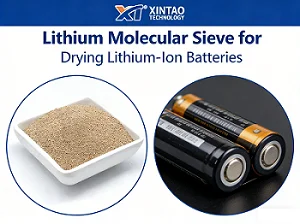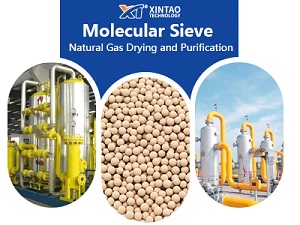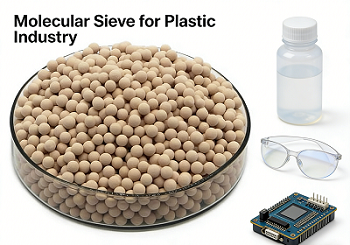Table of Contents
ToggleAdvantages of Molecular Sieve in Natural Gas Desulfurization
In the energy field, natural gas has become a key force in the transformation of the global energy structure with its clean and efficient characteristics. In the process of natural gas from mining to transportation, the processing link is crucial, which directly affects the quality and safety of natural gas. Molecular sieves, as a porous material with precise pore size and strong adsorption performance, play an irreplaceable role in the field of natural gas processing with their unique physical and chemical properties.
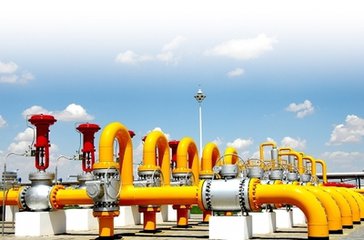
Molecular sieve is a type of aluminosilicate crystals with uniform microporous structure. The pores and cavities inside them are uniform and precise, and only molecules of a specific size are allowed to enter, which has a screening effect. This screening effect enables it to selectively adsorb target molecules in natural gas. In addition, molecular sieve zeolite has a large specific surface area and has a strong affinity for polar molecules (such as water and carbon dioxide), which can achieve efficient adsorption.
In natural gas processing, dehydration is the primary link. If natural gas contains water, it will not only reduce the combustion efficiency, but also form hydrates in the pipeline, block the pipeline, and cause safety accidents. Molecular sieve desiccant has become the preferred material for deep dehydration of natural gas due to its high specific surface area and strong adsorption capacity for water molecules. It can reduce the water content in natural gas to an extremely low level, ensuring the safe transportation of natural gas under low temperature and high pressure environment.
In addition to dehydration, desulfurization is also a key step in natural gas processing. Sulfides such as hydrogen sulfide contained in natural gas are corrosive and toxic, which will damage pipeline equipment and pollute the environment. Molecular sieve removes sulfides from natural gas by chemical reaction or physical adsorption with sulfides. Some specially modified molecular sieves have higher adsorption capacity and selectivity for hydrogen sulfide, which can meet the desulfurization needs under different working conditions.
The decarbonization process is also inseparable from the help of molecular sieves. Carbon dioxide will reduce the calorific value of natural gas, affect its commercial value, and increase greenhouse gas emissions when burned. Molecular sieves can preferentially adsorb carbon dioxide based on differences in molecular size and polarity, achieve efficient separation of carbon dioxide and methane in natural gas, and improve the quality and purity of natural gas.
In practical applications, the performance of molecular sieve is also affected by many factors. Temperature and pressure will change the adsorption equilibrium of zeolite molecular sieve. Too high temperature will reduce the adsorption capacity, while changes in pressure will affect the rate of adsorption and desorption. In addition, molecular sieves will reach adsorption saturation after a period of use and need to be regenerated. Common regeneration methods include heating regeneration and pressure reduction regeneration. By removing impurities adsorbed on the molecular sieve, its adsorption performance is restored and recycled.
13X Molecular Sieve
Xintao 13X molecular sieve has a pore size of 10 angstroms and has the characteristics of uniform pore size, strong adsorption efficiency, fast adsorption speed, extremely high specific surface area and high strength. It can be mainly used to adsorb gases such as water, carbon dioxide and hydrogen sulfide. It is the preferred adsorbent for natural gas drying and desulfurization.
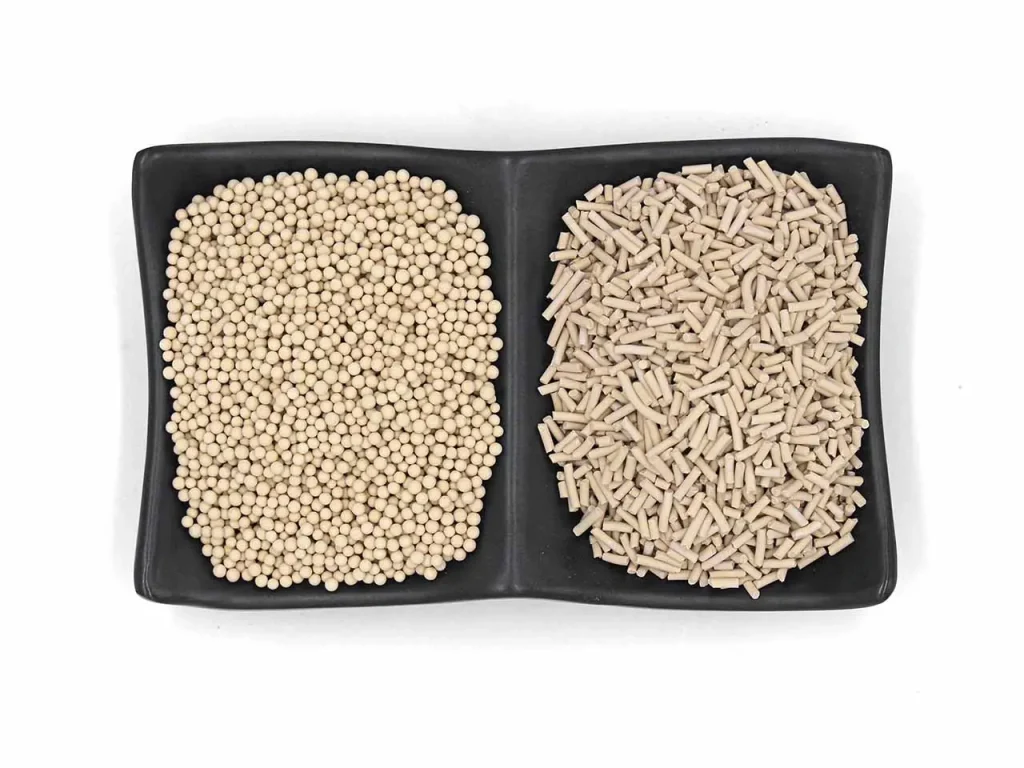
13X Molecular Sieve
Size: 1.6-2.5mm/3-5mm beads 1.6mm/3.2mm pellet
Contact Xintao
If you have any question, please contact us!

